Description
ABSTRACT
Role of the Court in the Interpretation and Development of Intellectual Property Law: The Nigerian Experience
Adebambo Adewopo*
I. INTRODUCTION
The role of the court in the interpretation and development of intellectual property (IP) law is undoubtedly pertinent and significant in the current dynamics of IP law and practice in this country. It is pertinent because IP has become one of the most topical issues in the emergent knowledge economy. It is significant because the entire global knowledge industries, which rely on IP, depend on the courts for the interpretation of relevant IP laws to determine the full extent of their rights and obligations with regard to protection and commercial exploitation of their IPR. Consequently, in different jurisdictions, the courts have established a thick encrustation of IP jurisprudence that has defined the relevant legal framework in its application to the particular socio-cultural and commercial environment where IP is exploited. This article examines the judicial interpretation of the various aspects of IP law. However, in fulfilling its strategic role, part of the challenges in the development, is captured not only in over two decades of unsuccessful attempts at reform of the law but also in the judicial articulation that has trailed its trajectory in the IPRs regime in Nigeria.
The article underscores the traditional role of the courts in legal development. It presents two perspectives in the evaluation of the role of the courts in the interpretation and development of IP of law in Nigeria. The first is an overview of the salient characteristics and attributes of the Nigerian IP law, which raises the issue whether it has produced a consistent pattern of principles in the context of analysis of judicial attitude in the development of IP law. In that context, some of the major features and principles of Nigerian IP law are provided. The second is a critical analysis of some topical case law from which judicial trends may be gleaned as the indication of the role of the court in the development of IP law. The article argues that the courts have not properly studied and articulated IP law, as some cases examined will show, and that the overall interpretative role, with notable exceptions, has been less than satisfactory. It establishes that IP law today is better served by a more pragmatic and constructive judicial approach in the interpretation of IP legislation, especially given the emergent importance and contribution of IP to national development with the accompanying need for a socially responsive policy and legal framework for an effective IPR regime. The article anchors its conclusion on two imperatives in the emergence of a more pragmatic judicial attitude in the development of IP law, namely, the need for specialized IP training for judges and the revision of existing IP law to reflect the prevailing environment in the exploitation of IPR.
2. THE ROLE OF THE COURTS DEFINED
Fundamentally, the traditional role of the courts in the interpretation of laws is a time-hallowed duty that underpins the organic function and structure of the State. It is also a trite principle of separation of powers that the courts are responsible for the interpretation of the law enacted by the legislature. That interpretative role has been elaborately defined by different jurisprudential schools of thought, whether as the natural, normative or the positive schools. While the normative school regards the court as essentially interpreting the law as it ought to be, the positive school strictly confines the role of the court as interpreting the law as it is. According to Richard Posner:
The judicial mentality would be of little interest if judges did nothing more than apply clear rules of law created by legislators, administrative agencies, the framers of the constitutions and other extrajudicial sources (including commercial custom) to facts that judges and juries determined
* Professor of Intellectual Property Law, Nigerian Institute of Advanced Legal Studies, Abuja. The original text of this article is a paper presented at the Section on Business Law Conference, Nigerian Bar Association held at Eko Hotel, Lagos on the 27th May 2014.

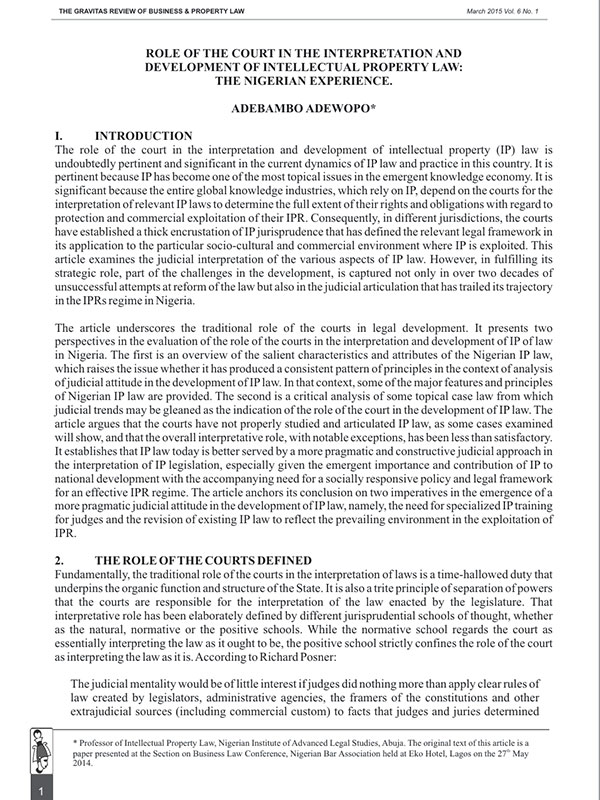
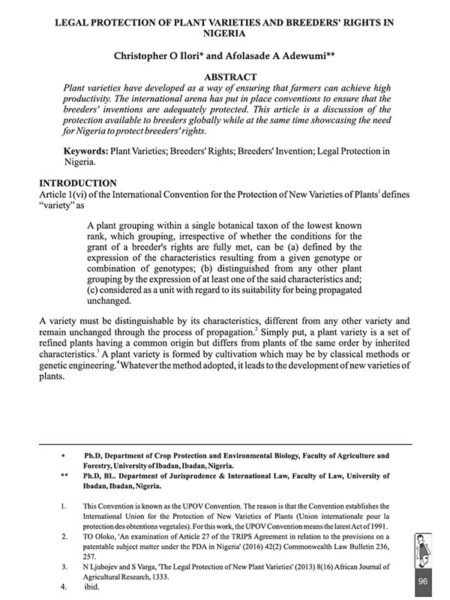
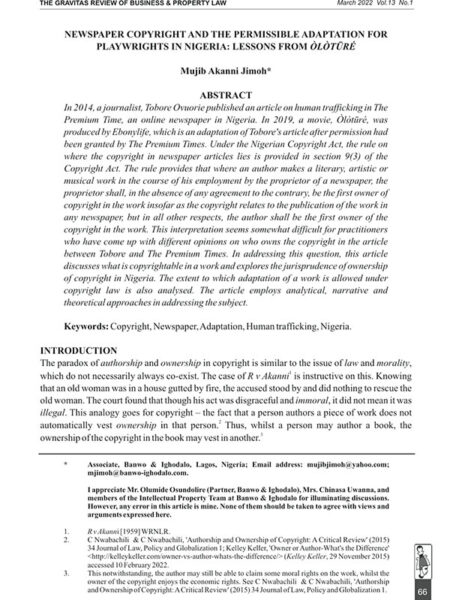
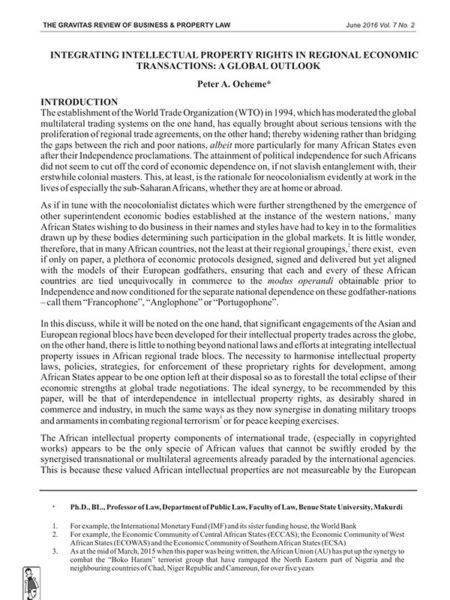
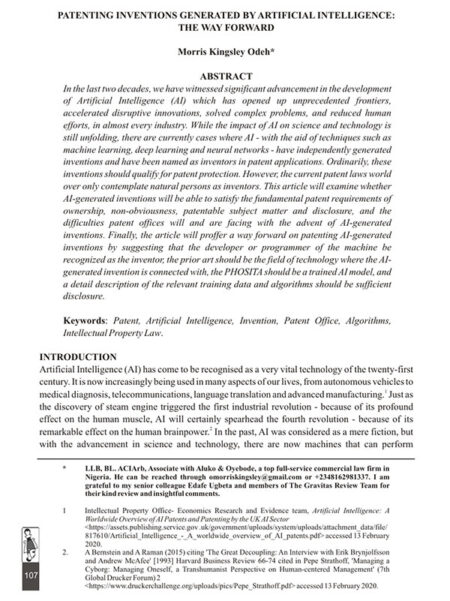


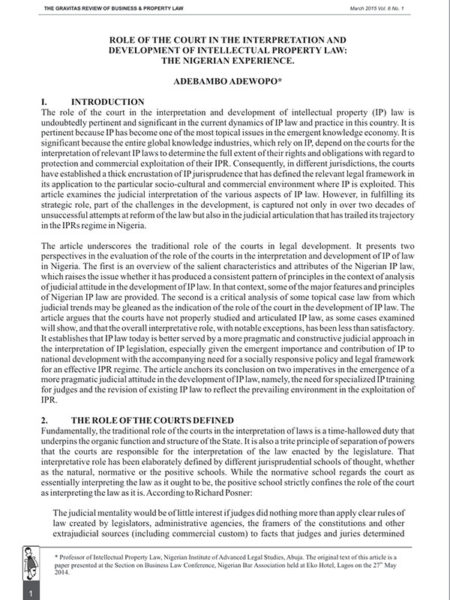
Reviews
There are no reviews yet.